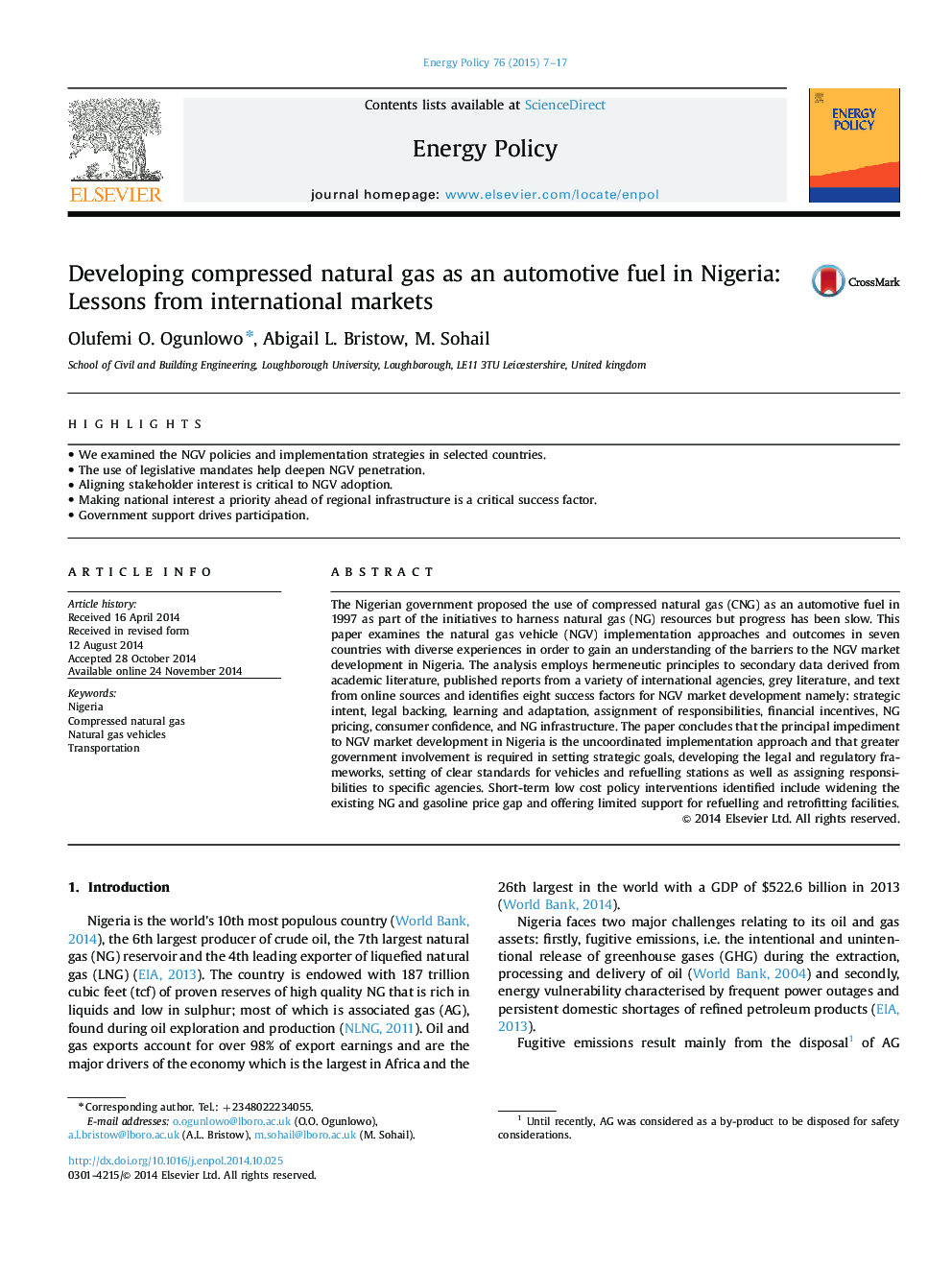| کد مقاله | کد نشریه | سال انتشار | مقاله انگلیسی | نسخه تمام متن |
|---|---|---|---|---|
| 992862 | 1481282 | 2015 | 11 صفحه PDF | دانلود رایگان |
• We examined the NGV policies and implementation strategies in selected countries.
• The use of legislative mandates help deepen NGV penetration.
• Aligning stakeholder interest is critical to NGV adoption.
• Making national interest a priority ahead of regional infrastructure is a critical success factor.
• Government support drives participation.
The Nigerian government proposed the use of compressed natural gas (CNG) as an automotive fuel in 1997 as part of the initiatives to harness natural gas (NG) resources but progress has been slow. This paper examines the natural gas vehicle (NGV) implementation approaches and outcomes in seven countries with diverse experiences in order to gain an understanding of the barriers to the NGV market development in Nigeria. The analysis employs hermeneutic principles to secondary data derived from academic literature, published reports from a variety of international agencies, grey literature, and text from online sources and identifies eight success factors for NGV market development namely: strategic intent, legal backing, learning and adaptation, assignment of responsibilities, financial incentives, NG pricing, consumer confidence, and NG infrastructure. The paper concludes that the principal impediment to NGV market development in Nigeria is the uncoordinated implementation approach and that greater government involvement is required in setting strategic goals, developing the legal and regulatory frameworks, setting of clear standards for vehicles and refuelling stations as well as assigning responsibilities to specific agencies. Short-term low cost policy interventions identified include widening the existing NG and gasoline price gap and offering limited support for refuelling and retrofitting facilities.
Journal: Energy Policy - Volume 76, January 2015, Pages 7–17
